What is a Mentor? An Institutional Perspective
Cite as: Elmore B. What is a mentor? an institutional perspective. ASRA Pain Medicine News 2024;49. https://doi.org/10.52211/asra110124.014.
With growing interest in career development and wellness since the pandemic, renewed attention has been given to career mentorship in medicine. Identifying mentors can be significantly challenging, especially for early-career physicians. Should we rely on assigned mentors or nurture the natural relationships we forge across our career arc? What sort of characteristics should a worthwhile mentor possess? Suzanne Koven's recent New England Journal of Medicine perspective, “What Is A Mentor?” tells one physician's story of mentorship across her career and identifies several traits commonly held by good mentors.1 Her short essay has many fantastic observations like these:
- "A mentor is someone who has more imagination about you than you have about yourself."
- "What [mentors] all have in common is genuine empathy and firm ego boundaries — qualities not dissimilar to those that make someone a good friend, teacher, parent, or clinician. That is to say that they've truly cared about my well-being and success and understood that mentorship is about the mentee, not the mentor."
Koven's article also led to significant personal introspection for this author. Do her mentor and mentee experiences extrapolate to experiences in ASRA? Has my experience been similar?
At the University of Virginia, we are fortunate to have had a legacy of mentors who have developed a deep connection with ASRA since its modern inception. I sought the opinions of some of those individuals, asking them to reflect on what makes a mentor.' I have included excerpts from their responses.
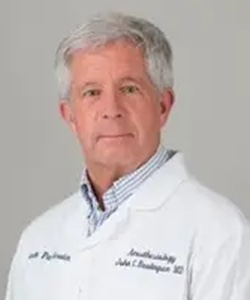 John Rowlingson, professor emeritus, University of Virginia
John Rowlingson, professor emeritus, University of Virginia
(Former ASRA Pain Medicine president and Gaston Labat Award winner)
A mentor is, in part, an individual with the heart as well as the mind for "teaching" in the broadest sense. … The mentor aims to ensure genuine learning through consistent, passionate engagement. Yet, for the mentor, teaching is not the only task. There is also the passion to serve a greater role. A mentor broadens the mentee's horizons with trusted constructive criticism, challenges siloed thoughts and negative viewpoints, and invokes inspiration. The mentor tacitly instills values and vision at each compassionate encounter.
Thus, the responsibility is far greater than academics. The mentor demonstrates generosity in many ways while nurturing the mentee. The consistent focus on mentees leads to their growth and enhanced well-being. The relationship creates a bond that lasts well beyond the advice provided.
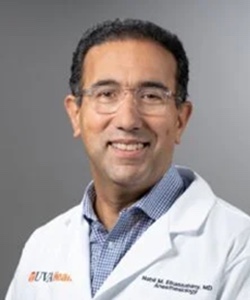 Nabil Elkassabany, professor and vice chair of clinical operations, University of Virginia (Former member of ASRA Pain Medicine Board of Directors)
Nabil Elkassabany, professor and vice chair of clinical operations, University of Virginia (Former member of ASRA Pain Medicine Board of Directors)
A mentor is someone you admire, [who] will advise, coach, counsel, and support you. Your mentor is someone who walked the hallways you are about to go through before. You may have various interests throughout your career and different mentors in each one of these pathways. Being a mentor is one of the most gratifying activities someone can do through their academic career.
My motivation to be a mentor and actually seek it out at times stems from my personal experience with outstanding mentors throughout my career in academic anesthesiology. I would not be at this point in my career without those to whom I owe a ton of gratitude, whether it was the person who gave me my first speaking opportunity or always made time to meet with me, although we did not work together in the same institution. I remain in debt to Dr. Vincent Chan as he helped me navigate many challenges while sponsoring me for multiple opportunities at a national level. … While I did not have "local" mentors in my institution in the same subspecialty, I easily found mentorship through the ASA and ASRA Pain Medicine.
Often, I found the best mentors in my peers with whom I would discuss ideas and collaborate within areas of common interest. Many of these peer-mentor relationships have ultimately led to great friendships that are still thriving. Dr. Edward Mariano is a prime example of a peer mentor whose wisdom and support have been invaluable to me over the years. A key mantra ingrained in my mind by my mentors is that "we pay it forward." My mission is to help faculty and trainees in my institution and beyond. The only thing I ask of them is that they do the same whenever they are in a position to help others."
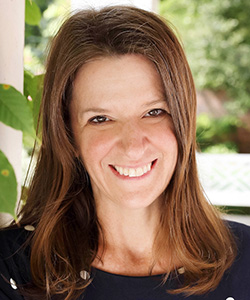 Lynn Kohan, professor and medical director of the Pain Management Center, University of Virginia (Member of ASRA Pain Medicine Board of Directors)
Lynn Kohan, professor and medical director of the Pain Management Center, University of Virginia (Member of ASRA Pain Medicine Board of Directors)
The most rewarding aspect of my job is aspiring to be the best mentor possible. It provides meaning in ways that other aspects of medicine do not. Mentorship can develop in many forms, whether guiding people through a specific project or more comprehensively guiding them through multiple facets of their careers and lives. Regardless of the form, mentoring has the capability of fostering life-long relationships. It is important to understand the mentee's needs and provide mentorship and true sponsorship. It is exhilarating to guide people to develop tools to succeed in their endeavors. Additionally, I have been enormously grateful to the mentors who have taught me the tools to succeed within our institution and beyond. The mentor/mentee relationship is extremely valuable and needs to be fostered. Doing so can lead to rewards for all involved.
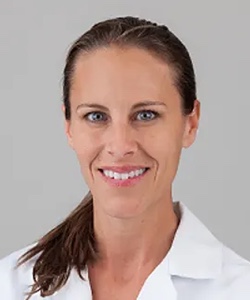 Ashley Shilling, professor, University of Virginia (Founder and former chair, ASRA Pain Medicine Physician Mentorship and Leadership Special Interest Group)
Ashley Shilling, professor, University of Virginia (Founder and former chair, ASRA Pain Medicine Physician Mentorship and Leadership Special Interest Group)
Jen Potter, a dear friend and mentee of mine, and I were talking about this just yesterday (in response to my guilt of not keeping in touch with so many medical students, residents, and fellows that I have helped train and loved deeply but somehow lost over the years). Mentoring is not a point in time. It is an endless relationship that lifelong affects thoughts, decisions, and life paths. You may think you have lost mentees, but if you were part of their growth, change, and actualization, you are always a part of their story. It's pretty cool to think that we cross into each other's lives; participate, invest, nurture, teach... and then we may believe that we are lost to each other but are not. My mentors and role models may not remember me (some may never even know me), but they are a permanent part of me and my journey.
What makes a good mentor? Caring. That is all that it truly takes to mentor someone well, caring about them in a holistic way that transcends any single role, agenda, or preconception. A good mentor must be a good supporter and must invest in mentees. All of that is easy if the mentor cares about the mentee.
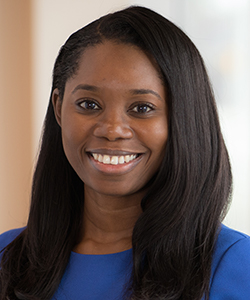 Iyabo Muse, associate professor and chief of regional anesthesia, University of Virginia
Iyabo Muse, associate professor and chief of regional anesthesia, University of Virginia
A mentor impacts a mentee's professional or personal development trajectory. This person's primary purpose is to be an advisor, thus helping mentees navigate pathways to accomplish their career ambitions and goals. A mentor's role is to support progress; this could be through formal or informal discussions about building skills, qualities, and confidence in their decisions for career advancement. They tend to provide perspective to a mentee by offering insight into how a mentee can increase professional exposure by finding key projects or people who can help advance one's goals.
So why does one become a mentor? A person becomes a mentor most commonly to have the satisfaction of watching mentees develop and achieve their career goals. Sometimes, becoming a mentor could also be accidental: I have had mentors who have not formally given me advice, but their character and professional actions led me to admire them and strive to imitate them. It is also important to note that a mentor does not have to look like you or come from a similar background as yourself. However, they should have experience with whatever the mentee desires. A characteristic of a good mentor is someone with empathy, kindness, and openness who values sharing experiences with others. In summary, an effective mentor is someone with an open-door policy, someone trustworthy, an advisor, and one who truly desires to positively impact another's career development and well-being.
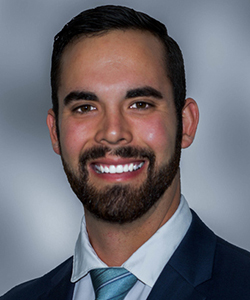 Brian Brenner, former chief resident, University of Virginia
Brian Brenner, former chief resident, University of Virginia
(2024 ASRA Pain Medicine Resident/Fellow of the Year)
Mentors all possess the following traits:
- Knowledge - Facts, information, and skills acquired by a person through experience or education, the theoretical or practical understanding of a subject.
- Conviction - A firmly held belief or opinion.
- Emotional Intelligence - The ability to manage your emotions and understand the emotions of people around you.
These characteristics have presented themselves repeatedly in people [from whom] I have sought counsel regarding all matters in life, personal and professional. They have strong convictions about their passions, and it is evident in their work that people want to engage with them and be a part of their work. They also have the emotional capacity to not only meet individuals where they are in their lives and guide them from that unique perspective but to do so in a manner of pure altruism. While there are many variants of mentors with different ranges of these core traits, I believe they are in a mentor's proverbial alchemy. I encourage everyone who feels like they are becoming mentors to stop and think about the core traits of their mentors and try to emulate them from their lens of knowledge, conviction, and empathy."
I appreciate my colleagues sharing their perspectives on mentorship. Koven concluded her perspective with the following mentor validation: “The best gauge is how you feel after meeting with them.” While Koven is unlikely to find disagreement with that assessment, arriving at that point in mentorship requires considerable time and emotional investment in first finding the mentor. In fact, finding a mentor is likely the single biggest hurdle for most. Yu et al noted strikingly low percentage of junior [surgery] faculty had formal mentors (18.3%).2 The award-winning ASRA Physician Leadership and Mentoring SIG-sponsored Mentor Match was initially created to relieve some of that burden by providing mentees with many accomplished and likeminded mentors who want nothing more than to “hold the door open for others,” as Dr. Elkassabany so often says. Recognizing that there would be a need to facilitate future mentor and mentees matches our SIG limits the match cycle to only 9 months. To date, we have made 408 pairings across 4 years. Former mentors and mentees have been interviewed about the process and its successes.3
Mentorship is decidedly not one size fits all in its implementation, but core traits are critical to its success: mutual caring, empathy, and conviction. My most effective mentors have all been passionate about their role in patient care and education, which is why I sought them out in the first place. I've had informal, spontaneous mentoring relationships (Drs. Ashley Shilling and Nabil Elkassabany at UVA) and formal ones (Drs. Kristopher Schroeder and Sanjib Adhikary through ASRA). The common thread among them is sincerity in their desire to help and supportiveness for my development. These attributes were assuredly instilled in them by their mentors. I hope to honor that sentiment in my career by mentoring the next generation.
If you want to find or be a mentor, visit our SIG and sign up!

References
- Koven S. What Is a Mentor? N Engl J Med 2024;390(8):683-5. https://doi.org/10.1056/NEJMp2313304
- Yu J, Ruhi-Williams P, de Virgilio C, et al. Mentorship of junior surgical faculty across academic programs in surgery. JAMA Surg 2024;e243390. https://doi.org/10.1001/jamasurg.2024.3390
- Meyer P. Physician mentorship and leadership development SIG newsletter. American Society of Regional Anesthesia and Pain Medicine. https://www.asra.com/the-asra-family/special-interest-groups/sig-article-item/sig-newsletter/2021/10/22/october-2021-physician-mentorship-and-leadership-development-sig-newsletter. Published October 2021. Accessed Month Day Year.